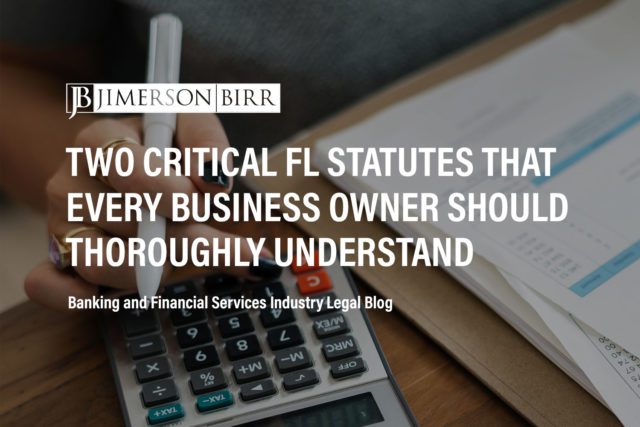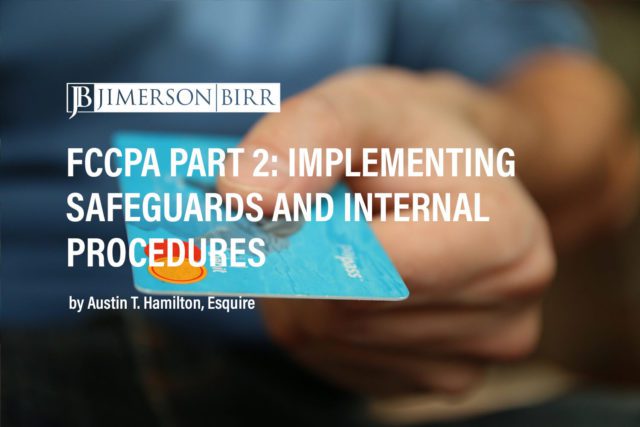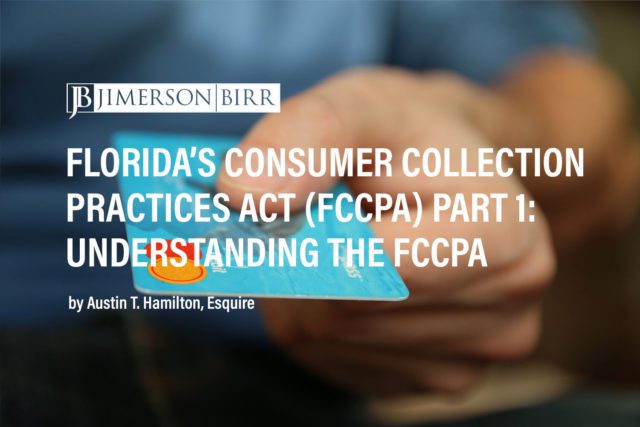In Florida, which laws and regulations apply to FCCPA compliance?
In Florida, the Florida Consumer Collection Practices Act (FCCPA) is primarily governed by Florida Statutes § 559.55-559.785 and protects consumers from abusive and deceptive debt collection practices. Furthermore, it complements the federal Fair Debt Collection Practices Act (FDCPA), which sets national standards for debt collection practices.
The Florida Deceptive and Unfair Trade Practices Act (FDUTPA) (Florida Statutes §§ 501.201-501.213) may also be relevant in cases involving deceptive and unfair collection practices.
Need help regarding FCCPA defense litigation? Schedule your consultation today with a top FCCPA defense litigation attorney.
What FCCPA compliance issues commonly lead to litigation?
The following issues commonly lead to FCCPA litigation:
- Harassing or abusive behavior: Engaging in harassing, abusive, or oppressive conduct, such as using obscene language or repeatedly contacting the debtor with the intent to annoy, violates the FCCPA § 559.72(7) and may result in litigation.
- False or misleading representations: Misrepresenting the character, amount, or legal status of a debt or using deceptive means to collect a debt is prohibited by FCCPA § 559.72(9) and FDCPA § 1692e. Such misrepresentations may lead to legal action against the debt collector.
- Threats of legal action: Threatening to take legal action that is not permitted or intended is a violation under both the FCCPA § 559.72(4) and FDCPA § 1692e(5), which may lead to litigation.
- Contacting third parties: Under the FCCPA § 559.72(5) and FDCPA § 1692c(b), debt collectors are generally prohibited from communicating with third parties, such as the debtor’s employer or family members, without the debtor’s consent. Violations may result in legal action.
When a set of facts is appropriate for FCCPA defense litigation, there are many paths a claimant may take. We are value-based attorneys at Jimerson Birr, which means we look at each action with our clients from the point of view of costs and benefits while reducing liability. Then, based on our client’s objectives, we chart a path to seek appropriate remedies.
To determine whether your unique situation may necessitate litigation, please contact our office to set up your initial consultation.
What are effective strategies to maximize FCCPA compliance?
Consider implementing the following measures:
- Developing and implementing clear policies and procedures: Ensure your organization has well-defined guidelines based on FCCPA § 559.72 and FDCPA § 1692 requirements, which address debt collection practices and communication with debtors.
- Regular training for debt collectors: Conduct regular training sessions to educate debt collectors on FCCPA and FDCPA regulations and best practices, ensuring they understand the importance of compliance and the consequences of non-compliance.
- Monitoring and auditing: Establish a system to monitor and audit debt collectors’ activities, ensuring they adhere to FCCPA and FDCPA regulations. Take corrective action immediately if you identify non-compliant practices.
- Maintaining accurate records: Keep detailed records of all communications with debtors, including the date, time, and content of each interaction. This information is crucial in the event of a dispute or litigation.
- Seeking legal advice: Consult with an attorney experienced in FCCPA and FDCPA matters to ensure your organization’s policies and practices comply with state and federal regulations.
Please contact our office to set up your initial consultation to see what actions or defenses may be available for your unique situation.
Frequently Asked Questions
- Can a debt collector contact a debtor’s employer or family under the FCCPA?
Under the FCCPA § 559.72(5) and FDCPA § 1692c(b), debt collectors generally cannot communicate with third parties, such as the debtor’s employer or family members, without the debtor’s consent. However, exceptions exist, such as contacting an employer to verify employment or garnishing wages due to a court order.
- What are the penalties for non-compliance with the FCCPA?
Violations of the FCCPA can result in legal action and penalties, including actual damages, statutory damages up to $1,000, and reasonable attorney’s fees and costs as per § 559.77. In addition, debt collectors may also face injunctions or other equitable relief.
- Are there any differences between the FCCPA and the FDCPA?
While the FCCPA and FDCPA share similarities in their purpose and scope, fundamental differences exist. For instance, the FCCPA applies to original creditors, whereas the FDCPA only applies to third-party debt collectors. Additionally, the FCCPA has some specific provisions not found in the FDCPA, such as the prohibition on collecting debts discharged in bankruptcy § 559.72(18).
Have more questions about an FCCPA defense-related situation?
Crucially, this overview of FCCPA compliance does not begin to cover all the laws implicated by this issue or the factors that may compel the application of such laws. Every case is unique, and the laws can produce different outcomes depending on the individual circumstances.
Jimerson Birr attorneys guide our clients to help make informed decisions while ensuring their rights are respected and protected. Our lawyers are highly trained and experienced in the nuances of the law, so they can accurately interpret statutes and case law and holistically prepare individuals or companies for their legal endeavors. Through this intense personal investment and advocacy, our lawyers will help resolve the issue’s complicated legal problems efficiently and effectively.
Having a Jimerson Birr attorney on your side means securing a team of seasoned, multi-dimensional, cross-functional legal professionals. Whether it is a transaction, an operational issue, a regulatory challenge, or a contested legal predicament that may require court intervention, we remain tireless advocates at every step. Being a value-added law firm means putting the client at the forefront of everything we do. We use our experience to help our clients navigate even the most complex problems and come out the other side triumphant.
If you want to understand your case, the merits of your claim or defense, potential monetary awards, or the amount of exposure you face, you should speak with a qualified Jimerson Birr lawyer. Our experienced team of attorneys is here to help. Call Jimerson Birr at (904) 389-0050 or use the contact form to schedule a consultation.

We live by our 7 Superior Service Commitments
- Conferring Client-Defined Value
- Efficient and Cost-Effective
- Accessibility
- Delivering an Experience While Delivering Results
- Meaningful and Enduring Partnership
- Exceptional Communication Based Upon Listening
- Accountability to Goals











